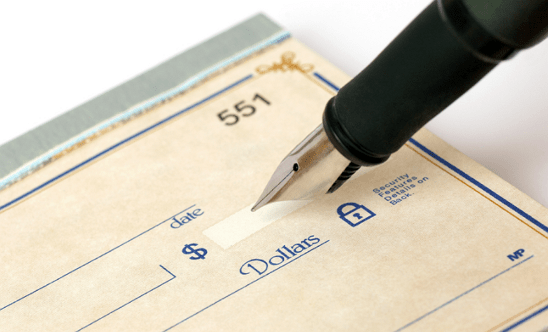Overview
In this article, Advisory HQ will take a look at Capital One, Chase Bank, and CitiBank. We will compare these three banks and rank them on different categories based on their financial offerings. We will also talk about Capital One and answer the question, “What is Capital One?” In addition, a comparison on Capital One vs. Chase and Capital One vs. CitiBank will be given regarding the differences in checking accounts, rewards programs, and more.
Furthermore, we will talk about Chase Bank and ask the question, “What is Chase Bank?” in order to find out more about the company. As with Capital One, a comparison of Chase vs. Capital One and Chase vs. CitiBank will be provided to find out the best banking options for you as a customer. With each bank, we will compare the best credit card options as well.



Image Source: A comparison of Chase vs. Capital One and Chase vs. CitiBank
Lastly, we will ask, “What is CitiBank?” and we will learn about CitiBank in order to answer this question. This review will include a comparison of CitiBank vs. Chase as well as CitiBank vs. Capital One in order to get a well-rounded and in-depth comparison and ranking of all three banks.
This review and comparison will be helpful to customers looking to switch banks or for rising adults looking for their very first banking option.
See Also: Best Free Checking Account Banks – No Fees, Best Yields
About Capital One
When asking the question, “What is Capital One?” we want the details on what this bank has to offer its customers and how customers feel about Capital One as a whole. According to its website, “Capital One is a diversified bank that offers a broad array of financial products and services to consumers, small businesses, and commercial clients.”
Like most banks, Capital One offers checking’s accounts, savings accounts, certificates of deposit, credit cards, and debit cards. It has branches located in 6 states as well as in Washington, D.C. Also, Capital One offers a variety of credit card options that include rewards programs. The Capital One Quicksilver Rewards Credit Card is its most popular option this year, specifically for short-term/low spenders.
About Chase Bank
“What is Chase Bank?” When trying to answer that question and figure out more about Chase, we first went to its website. Under the section “About Chase,” the website states, “We serve nearly half of America’s households with a broad range of financial services, including personal banking, credit cards, mortgages, auto financing, investment advice, small business loans and payment processing.”
With a first-look comparison of Capital One vs. Chase, we see that Chase Bank seems to offer much more than Capital One regarding claims on their websites. Chase Bank also boasts a high number of Americans that it is currently serving. Looking at Chase vs. Capital One, they both offer the basics of checking accounts, savings accounts, certificates of deposit, credit cards, and debit cards.
Comparing Chase vs. Capital One, however, shows that Chase has a much wider range in locations than Capital One, with over 5,000 branches in 26 states. Chase Bank has popular credit card options, with its Chase Freedom Unlimited card being the best fixed-rate and bonus combo and its Chase Freedom card being the best for optimizers.
About CitiBank
Many people ask, “What is CitiBank?” and we answer this question just like the others – by learning about CitiBank and what its company says about itself. CitiBank has to be broad with its “About CitiBank” section because it is a part of a much larger worldwide corporation called CitiGroup. CitiBank claims, “Citi works tirelessly to provide consumers, corporations, governments and institutions with a broad range of financial services and products.”
In the United States, comparing CitiBank vs. Chase, Chase wins again with the amount of branches. CitiBank has only around 800 branches in 17 states. CitiBank offers the same services as other banks, including checking accounts, savings accounts, certificates of deposit, credit cards, and debit cards. However, being a global company, it also offers global client banking, investment options, and much more.
CitiBank has a few different credit card options, but the Citi Double Cash Card was ranked best for general spending.
Don’t Miss: Best Banks in Pennsylvania | Ranking of Top Banks in Philadelphia, Pittsburgh, etc.
All-in-One Change Management Tools
Top Rated Toolkit for Change Managers.
Get Your Change Management Tool Today...
Capital One Vs. Chase
Checking Account Comparison
When making the comparison of Capital One vs. Chase, we must look at many different categories and things about Capital One as well as about Chase. According to Credio, Chase wins the battle of Chase vs. Capital One by a mere tenth of a point, with Chase getting a 2.3 out of 5 and Capital One getting a 2.2 out of 5. These scores are based on customer reviews.
Let’s first take a look at a checking account comparison for Chase vs. Capital One. When looking at Chase vs. Capital One, they both offer basic checking accounts with no minimum balance required. While Capital One has no associated fees and, in some locations, offers rewards checking accounts, Chase requires 5 debit card purchases per month in order to wave a small $6 monthly fee.
Capital One and Chase are comparable on their premium checking account options as well. Capital One has an interest-earning checking account option called Tower Gold checking. For this account, you must have a $5000 minimum balance.
Comparing Capital One vs. Chase, you will see that Chase offers an interest-earning checking account as well, called Chase Better Banking. With this card, you must hold other accounts through Chase and keep a $1500 minimum balance to avoid the $12 monthly fee. However, you can also have a combined $5000 minimum balance in all of your Chase accounts.
When it comes to checking accounts, comparing Chase vs. Capital One shows very similar options. Capital One might be a better option for the simple checking account holder while Chase may provide more benefits if you hold other accounts with Chase as well.
Credit Card Options
Capital One vs. Chase can be compared on a variety of different categories. We looked at Chase vs. Capital One when it comes to checking accounts, and now we will look at Chase vs. Capital One when it comes to credit card options. We will compare Capital One vs. Chase on their most popular credit card options: Capital One Quicksilver Cash Rewards and Chase Freedom.
When searching about Capital One Quicksilver Cash Rewards, we see that this credit card gives 1.5% cash back on every purchase made. This credit card is great for customers using Uber because it gives 20% cash back on all Uber rides. There is also a $100 signup bonus when you spend $500 in the first three months.
When learning about the Chase Freedom credit card, we see that this credit card gives 5% cash back, but it varies in the spending categories throughout the year. The Chase Freedom card gives 1% cash back on all other purchases. There is a $150 signup bonus when you spend $500 in the first three months.
When deciding on Chase vs. Capital One for your credit card choice, both have great rewards. Capital One is the smart option for frequent Uber users who want to earn cash back all the time on every purchase. However, Chase will provide more cash back if you stick to the spending categories.
Related: Best Banks in Georgia | Ranking | Top banks in Atlanta, Savannah, Augusta, and Across Georgia
Chase vs. CitiBank
Checking Account Comparison



Image Source: Capital One vs. Chase vs. Citibank
While we already went over Chase’s checking account options when comparing Chase vs. Capital One, we will go over it once again here in order to compare CitiBank vs. Chase. Chase Bank offers basic checking account options as well as premium account options that will earn interest. When holding multiple accounts through Chase Bank, the benefits of having a premium checking account through it increases as well.
Chase vs. CitiBank on the category of checking account options is what we will now look at. Like Chase, CitiBank offers both basic checking account and premium checking account options. With CitiBank’s basic checking option, the monthly fee is waived if you keep a minimum balance of $1500 in your CitiBank accounts combined or if you make one direct deposit and one bill payment a month.
A difference with CitiBank vs. Chase can be seen in their signup bonuses. While Chase offers cash, CitiBank offers monthly points which can later be changed into gift certificates. Due to this, Chase may be the better option when comparing Chase vs. CitiBank for a checking account. According to My Personal Finance Pro, Chase also could be a better option in the Chase vs. CitiBank comparison because it has a larger physical bank presence nationwide.
Credit Card Options
We will now compare CitiBank vs. Chase on their most popular credit card options. Chase Freedom, as we explained when comparing Capital One vs. Chase, gives 5% cash back on rotation categories throughout the year and 1% cash back on all other purchases. There is also a $150 signup bonus when you spend $500 in the first three months.
When comparing credit card options with Chase vs. CitiBank, we will look at CitiBank’s most popular credit card: Citi Double Cash Card. With Citi Double Cash Card, you earn 1% cash back on all purchases and an additional 1% cash back when you pay them off. There is no signup bonus with Citi Double Cash Card.
Similar to our comparison with Capital One vs. Chase, our comparison of CitiBank vs. Chase is similar. Both offer great rewards programs on their credit cards; however, Chase has a more complex reward system with its rotating categories. Your rewards with the Citi Double Cash Card will be simple and steady. It is up to the spender to decide which will work best for him/her.
Popular Article: Ameris Bank Review | Ranking | What You Should Know Before Using Ameris
Capital One vs. CitiBank
Checking Account Comparison
We can use our checking account comparisons between Capital One vs. Chase and Chase vs. CitiBank to make an easy comparison of Capital One vs. CitiBank. Capital One has a basic checking account available with no associated fees and in some locations offers rewards checking accounts.
Capital One also has an interest-earning checking account option called Tower Gold checking. For this account, you must have a $5000 minimum balance. When comparing Citibank vs. Capital One on checking account options, CitiBank also offers both basic checking account and premium checking account options.
As mentioned above, With CitiBank’s basic checking option, the monthly fee is waived if you keep a minimum balance of $1500 in your CitiBank accounts combined or if you make one direct deposit and one bill payment a month. CitiBank has premium interest-earning account options for customers who also have other accounts through CitiBank.
Similar to our Capital One vs. Chase comparison, our comparison of Capital One vs. CitiBank shows that both have great checking account options; however, customers who have existing accounts through CitiBank may benefit from opening their checking account with it as well.
Credit Card Options
When comparing Capital One vs. CitiBank’s credit card options, we will again pull information from previous sections of the article to show the comparison of both banks’ most popular credit cards: Capital One’s Quicksilver Cash Rewards Card and the Citi Double Cash Card.
With Capital One vs. CitiBank being compared, we see that Capital One’s Quicksilver Cash Rewards gives 1.5% cash back on every purchase made. This credit card also gives 20% cash back on all Uber rides. There is a $100 signup bonus when you spend $500 in the first three months.
With Citi Double Cash Card, you earn 1% cash back on all purchases and an additional 1% cash back when you pay them off. There is no signup bonus with Citi Double Cash Card. In this comparison of CitiBank vs. Capital One credit cards, it is clear that Capital One provides the best rewards.
Read More: Bank of America Review & Ranking | What You Should Know About Bank of America









The Lowdown
It can become complex when comparing three different banks to one another because all of them have great aspects to them. Whether you look at CitiBank vs. Chase, Chase vs. Capital One or CitiBank vs. Capital One, you will see that each bank wins in a different way.
In this article, we only went as far as comparing the checking account and credit card options for each bank. There are many other aspects to consider when choosing a bank, and these will all come with personal finance needs. Be sure to learn about Capital One more on your own as well as learning about Chase and about CitiBank.
Once you have a good view of what your financial needs are, it will be easier to compare these three banks and make the best personal decision on which one to choose. All three of these banks have well-known reputations and huge customer bases. It would be hard to go wrong with any of them. Advisory HQ wishes you good luck in your search for the best bank for you and your family!
AdvisoryHQ (AHQ) Disclaimer:
Reasonable efforts have been made by AdvisoryHQ to present accurate information, however all info is presented without warranty. Review AdvisoryHQ’s Terms for details. Also review each firm’s site for the most updated data, rates and info.
Note: Firms and products, including the one(s) reviewed above, may be AdvisoryHQ's affiliates. Click to view AdvisoryHQ's advertiser disclosures.





